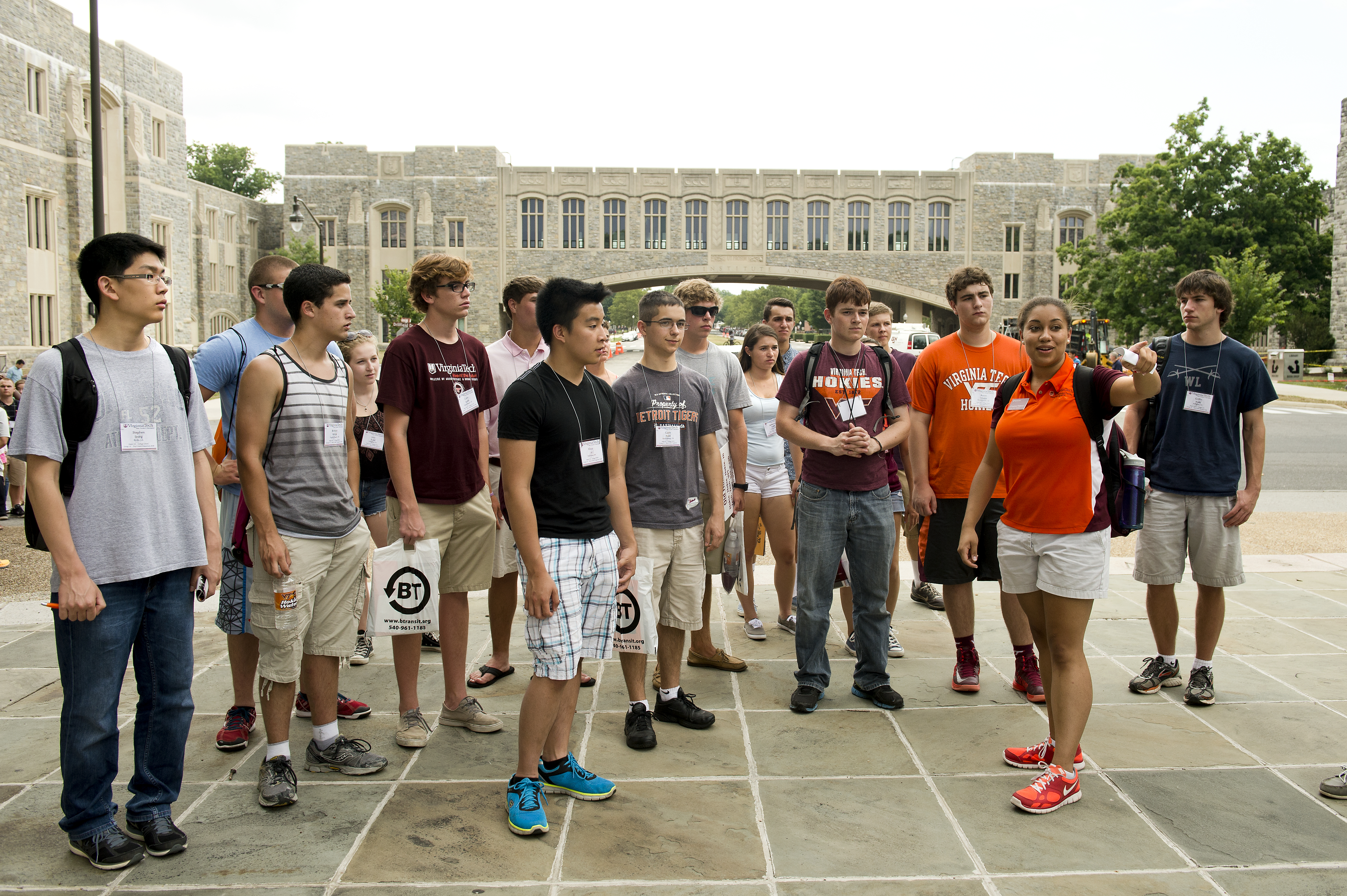Virginia Tech among top colleges in two new rankings by Money and Forbes

Virginia Tech is among the top 50 colleges and 25 best public colleges in Money Magazine’s new best college rankings list and also landed for the first time among the top 25 public colleges list as ranked by FORBES.
According to Money, Virginia Tech ranked 42nd among all institutions and tied for 12th in the list of the 25 best public colleges. Overall, Virginia Tech received a value grade of A- and a ranking score of 3.62 on a 4.0 scale. Money looked at the approximately 1,500 four-year colleges and universities in the United States to build its list, ultimately ranking 665 schools.
FORBES added Virginia Tech to its annual ranking of the top 25 best public colleges for the first time this year, ranking 23rd among public institutions and 117th out of 650 national schools included in the ranking. Among the top 25 public colleges, 16 states were represented, with Virginia having three colleges on the list.
Both recent rankings put a high value on the output of colleges, including graduation rates and the success of graduates.
Money evaluated colleges based on three categories:
- Educational quality, which encompassed graduation rates, peer institution quality (based on academic records of entering students), instructor quality, and student yield rates;
- Affordability, which was measured by the net price of a degree, debt, and loan default risks; and
- Outcomes, which looked at early and mid-career earnings of graduates adjusted by majors as indicated by Payscale.com, value-added earnings, and career services staffing.
FORBES evaluated colleges based on
- Student satisfaction, which included student evaluations from RateMyProfessor as well as transfer rates;
- Post-graduate success, which looked at salary data from Payscale.com, rate of graduates appearing on America's Leader Lists as well as national prize winners, student loan rates, and student debt;
- Graduation rates; and
- Academic success, which looked at schools whose students win prestigious scholarships or go on to earn doctorates.
Entering first-year students at Virginia Tech have competitive academic records, with an average high school grade point average of 3.98 on a 4.0 scale.
“Inclusion on Money’s value colleges list and FORBES top 25 best public colleges list is a reflection of the high quality of our institution and our students. Some of the best students in the country are recruited to our campus, all of whom take advantage of the strength and diversity of Virginia Tech’s degree offerings,” said Mark G. McNamee, senior vice president and provost. “It is our mission to educate the whole student, providing a hands-on, minds-on education in a variety of academic disciplines so students are prepared for future career success.”
As reflected by Virginia Tech's land-grant core mission of accessibility to higher education, the Money ranking recognized the university’s affordability. For 2014-15, undergraduate tuition and fees at Virginia Tech is $12,017 per year. Students also can take classes during summer and winter sessions at a 10 percent discount from fall and spring semesters allowing students accelerated pathways to complete degrees.
To ensure accessibility and affordability of university programs, undergraduate students received more than $119 million in grant aid and scholarship support in Fiscal Year 2013.
Both rankings also looked at the earnings power of graduates, where Virginia Tech earns high marks. Career Services at Virginia Tech finds 2012-13 graduates reported a median earned salary of $50,000 a year.
Dedicated to its motto, Ut Prosim (That I May Serve), Virginia Tech takes a hands-on, engaging approach to education, preparing scholars to be leaders in their fields and communities. As the commonwealth’s most comprehensive university and its leading research institution, Virginia Tech offers 240 undergraduate and graduate degree programs to more than 31,000 students and manages a research portfolio of $513 million. The university fulfills its land-grant mission of transforming knowledge to practice through technological leadership and by fueling economic growth and job creation locally, regionally, and across Virginia.




